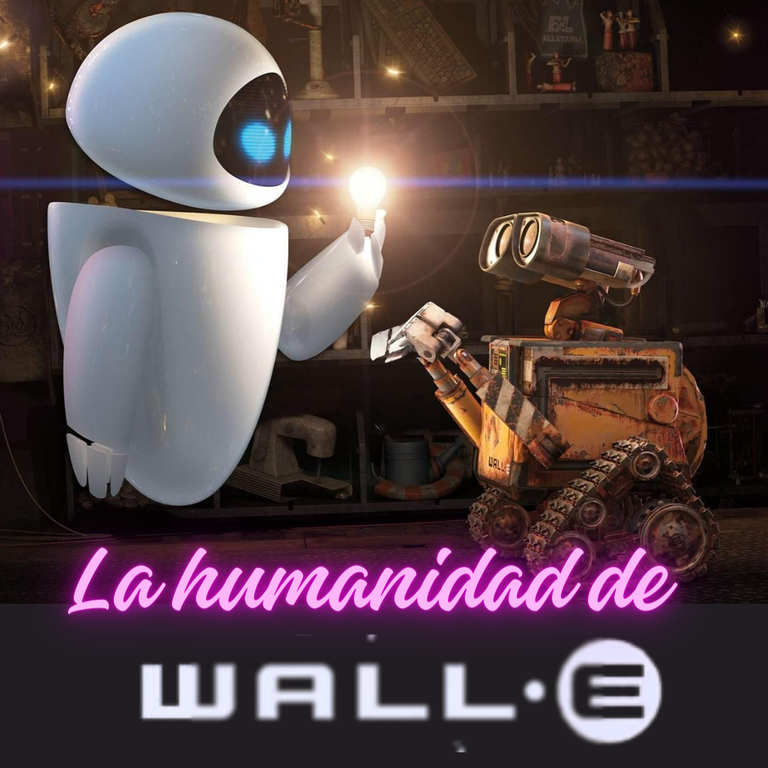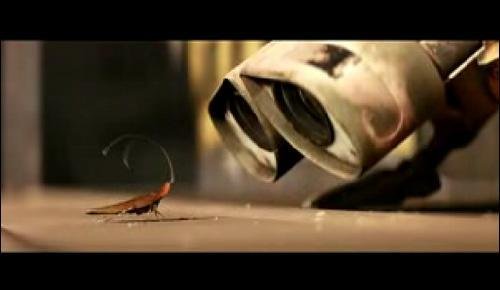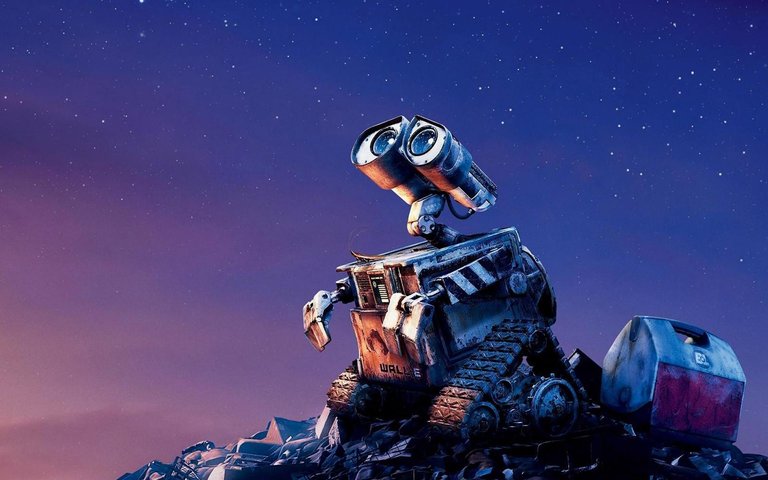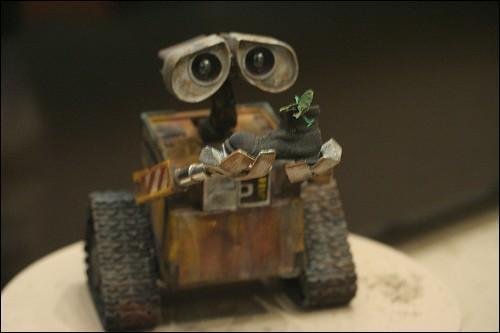

No les ha pasado que cuando ven una película por segunda o tercera vez, todo el concepto que tenías de ella cambia por completo?
Eso es muy común, porque depende del contexto y la situación personal por la que estamos pasando, al ser el cine más emocional, nuestro estado de ánimo influye muchísimo en cómo lo percibimos.
Y justo eso fue lo que me pasó cuando ayer vi con mi hijo menor la película Wall-E, que fue estrenada en 2008, el año que nació mi primer niño y con quien la ví cuando él tenía unos 6 años.
Para entonces, la disfrutamos como cualquier espectador y realmente me pareció una película muy tierna. Pero ahora que la vuelvo a ver, se activó en mi, el análisis semántico de esta encantadora pieza cinematográfica.
Haciendo una breve sinopsis, la trama se basa en dos robots, uno que es una compactadora de desechos y el otro es una sonda que está programada para encontrar signos de vida en una tierra desolada y abandonada.
El simple hecho de mantener al espectador anclado desde el inicio, sin necesidad del diálogo, ni efectos especiales, le da fuerza a la historia.

Wall-E - Filmaffinitty
Pero más allá de los hechos que presenta, Wall-E es una oda a muchas cosas: al poder del amor, a la importancia del trabajo bien hecho, aunque pocos (o nadie) le de el valor que tiene, al compromiso con tu sistema de creencias, a luchar por aquello que anhelas, a ir más allá de lo socialmente aceptado y tantas cosas extra que, para mi, lo hace una película entretenida pero también aleccionadora.
Los personajes secundarios juegan un papel importantísimo. Las acciones de los robots considerados defectuosos, al final de la película, nos enseña que cada quien, a pesar de sus condiciones, tiene su lugar en la sociedad, y basta que se presente la oportunidad para activar en cada uno, esa semilla que vino a sembrar en la sociedad: comprensión, tolerancia, respeto o paciencia.
Un personaje que llama mucho la atención, es un pequeño robot que se encarga de la limpieza. Él no se mueve sino por un camino que le señalan en el piso, pero que en algún momento decide que no siempre lo que dicen los demás es lo correcto, y se salta el protocolo seguido por sus instintos. Ese acto de rebeldía hace que la historia cambie su curso y evite una catástrofe.
La presencia de "auto" el piloto automático de la nave donde se encuentran los seres humanos, nos recuerda a los gobiernos autoritarios, con quienes no hay punto de mediación, enseñándonos también que está en nosotros poder desactivarlos si trabajamos de manera organizada.
Finalmente, un gag muy divertido es la presencia de la cucaracha como mejor amiga de Wall-E. Este animalito dicen que es el único capaz de sobrevivir a una catástrofe nuclear, y por ello ha quedado junto con nuestro robot protagonista en un planeta desolado, pero a pesar de su presencia, se nota que a Wall-E le hace falta el contacto con los de su "especie".

Source - Filmaffinity
La presencia de la alta tecnología, producto de 700 años de avances desde la época actual, nos sumerge en una posible realidad que ya estamos viviendo de alguna manera. Sin embargo, el toque de humanidad resalta en algunos puntos álgidos de la historia, en los que es un robot quien le enseña a las personas sobre la esencia de ser humano.
Finalizando, la banda sonora es un también un personaje que nos refleja sobre nuestra historia, nuestras costumbres y la esencia para hacernos sentir de una manera en particular.
El musical de Hello Dolly, por ejemplo, representa el cómo debemos llevar con alegría la vida, sin importar los monótono que puede llegar a ser el día a día. Y la Vie en Rose en la voz de Louis Armstrong nos muestra que a pesar de las adversidades siempre podemos ver la vida con motivos para vivirla.
Ustedes han visto esta película? Vieron todos los mensajes alternos que da? Los leo en los comentarios!

Have you ever noticed that when you watch a movie for the second or third time, your whole concept of it changes completely?
It's very common, because it depends on the context and the personal situation we are going through, since cinema is more emotional, our mood influences how we perceive it a lot.
And that's exactly what happened to me when I saw yesterday with my younger son the movie Wall-E, which was released in 2008, the year my first child was born and with whom I saw it when he was about 6 years old.

Wall-E - Filmaffinity
At that time, we enjoyed it like any viewer and it really seemed to me a very tender movie. But now that I see it again, the semantic analysis of this charming piece of cinema is activated in me.
Making a brief synopsis, the plot is based on two robots, one that is a waste compactor and the other is a probe that is programmed to find signs of life on a desolate and abandoned land.
The simple fact of keeping the viewer anchored from the beginning, without the need for dialogue, or special effects, gives strength to the story.
But beyond the facts it presents, Wall-E is an ode to many things: to the power of love, to the importance of a job well done, even if few (or no one) give it the value it has, to the commitment with your system of beliefs, to fight for what you yearn for, to go beyond what is socially accepted and so many other things that, for me, make it an entertaining but also instructive movie.
The secondary characters play a very important role. The actions of the robots considered defective, at the end of the movie, teach us that each one, despite their conditions, has their place in society, and it is enough that the opportunity arises to activate in each one, that seed that came to sow in society: understanding, tolerance, respect or patience.
A character that attracts a lot of attention is a small robot that is in charge of cleaning. He does not move but by a path that is shown to him on the floor, but at some point he decides that not everything that others say is correct, and he breaks the protocol followed by his instincts. This act of rebellion makes the story change its course and avoid a disaster.

Source - Filmaffinity
The presence of "auto", the autopilot of the ship where the human beings are, reminds us of the authoritarian governments, with whom there is no point of mediation, also teaching us that it is in us to deactivate them if we work in an organized way.
Finally, a very funny gag is the presence of the cockroach as Wall-E's best friend. This little animal is said to be the only one able to survive a nuclear disaster, and that's why it's been left with our robot protagonist on a desolate planet, but despite its presence, it's clear that Wall-E is missing the contact with those of his "species".
The presence of high technology, product of 700 years of advances from the current time, immerses us in a possible reality that we are already living in some way. However, the touch of humanity stands out in some high points of the story, in which it is a robot who teaches people about the essence of being human.
Finally, the soundtrack is also a character that reflects on our history, our customs and the essence to make us feel in a particular way.
The musical of Hello Dolly, for example, represents how we should carry life with joy, regardless of how monotonous it can become.
And Vie en Rose in the voice of Louis Armstrong shows us that despite the adversities we can always see life with reasons to live it.
Have you seen this movie? Did you see all the alternative messages it gives? I read them in the comments!

Source - Filmaffinity
Foto/Photo by: cortesy by Filmaffinity.com
Edición/Edited by @mamaemigrante using canva
Translated and formatted with Hive Translator by @noakmilo.


